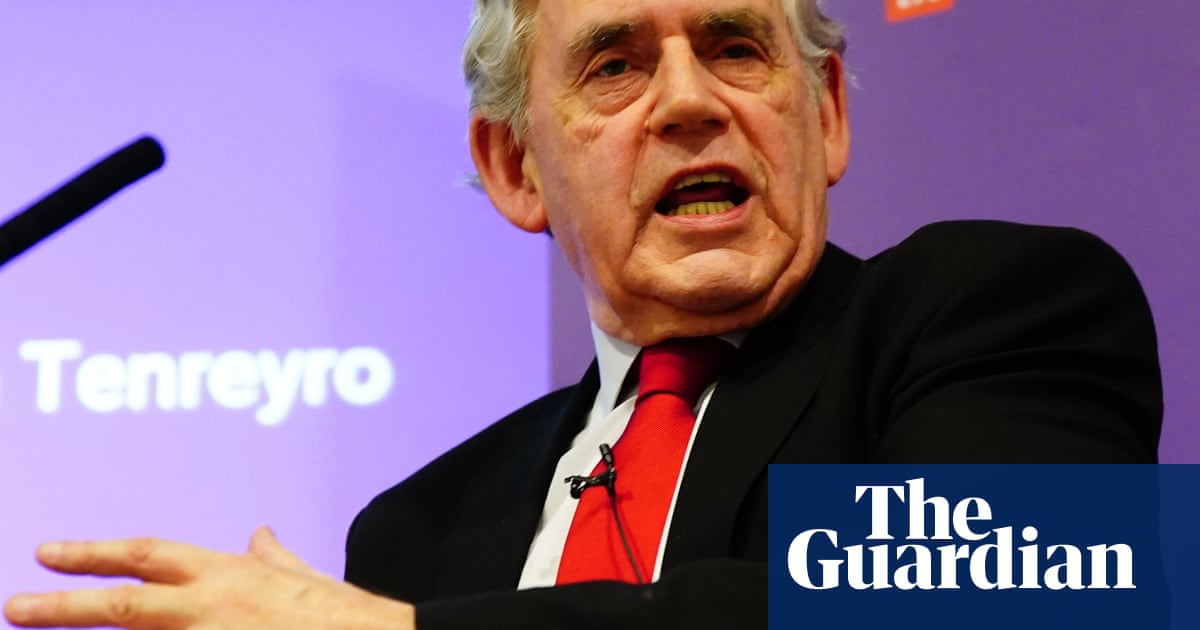Gordon Brown has publicly backed the government’s decision to delay its flagship child poverty strategy until the autumn, arguing ministers need to take the time to secure funding for reforms that could lift hundreds of thousands of children out of hardship.
The former prime minister said Keir Starmer and Rachel Reeves’ decision to wait until the autumn budget was “the right call”, despite some criticism from Labour MPs who think the delay signals a lack of urgency on a critical issue.
Experts have warned 100 children are pulled into poverty every day by the two-child benefit limit – a measure campaigners and a number of MPs hope will be scrapped as part of the strategy.
While the delay has sparked anxiety among many in the parliamentary Labour party, there is a significant number of MPs who say they agree the government should take the time to find the money to make a bold offer on child poverty.
Brown signalled the autumn budget should include taxes on gambling and banking that would help raise the money needed to lift hundreds of thousands of children out of poverty.
Writing for the Guardian, Brown said: “I know from my 10 years as chancellor that a public spending statement – which is not like a budget, where tax and spending announcements are made together – will not be able to undo the scale of the damage done to 4.5 million children now in poverty.
“Only a budget – when, for example, a gambling or a banking levy can be announced, neither of which would break a single election promise – can generate the £3bn that can take nearly half a million children out of poverty to meet the election promise ‘to end mass dependence on emergency food parcels’, to honour the mandate given to the child poverty taskforce to ensure a ‘reduction in this parliament’ and to ensure that, by investing in children, the coming decade can be the ‘promised decade of renewal’.”
Last week,the Guardian revealed No10’s decision to delay the strategy, which came as ministers continued to face growing pressure to scrap the two-child benefit cap – which Brown called the “most cost-effective way to take 35,000 children out of poverty immediately and rescue 700,000 from deep poverty”.
The policy is still under active consideration, with the Guardian reporting that Starmer has privately said he wants to leave the option of scrapping it on the table. However, sources said Morgan McSweeney, Starmer’s chief of staff, was opposed to the move, arguing the public viewed it as an issue of fairness.
Despite this, on Tuesday,the education secretary, Bridget Phillipson gave the strongest hint yetthat ministers intend to end the two-child benefit limit.
Sign up toHeadlines UK
Get the day’s headlines and highlights emailed direct to you every morning
after newsletter promotion
She said of charities who have long been campaigning for an end to the restriction: “We hear them … We want to make this change happen, and it will be the moral mission of this Labour government to ensure that fewer children grow up in poverty.”
Asked if the prime minster endorsed her words, his spokesperson said: “Of course, the secretary of state is speaking for the government.”
A senior backbencher told the Guardian it was “sensible” for the government to delay the strategy so it could be fully costed. Another Labour backbencher warned ministers should be “big and bold”, warning they will not be forgiven if child poverty has increased over this parliament.
It comes after Labour grandee David Blunkett warned Starmer’s government that the country was facing a “toxic mix” of insecure work, poor pay and a collapse in skills training that had left families trapped in hardship.
Blunkett, who helped create the Sure Start programme under the last Labour government, said the dismantling of early years services had stripped vulnerable families of basic support.
“It felt to communities like government wanted to come to them on their terms,” he said. “That’s what’s been lost.”
Last week the Guardian reported the child poverty taskforce is likely to recommend the return of the early years service Sure Start, although there are questions over how it could possibly be funded.
